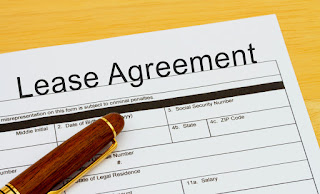Lease Agreement or Leave and Licence Agreement, which one to choose?
 |
Lease Agreement or Leave and Licence Agreement, which one to choose? |
At times, the three “L”s can be quite confusing; “Lease”, “Leave and “License”. The terms ‘Lease Agreement’ and ‘Leave and Licence Agreement’ are often misunderstood as the same thing. We are frequently asked these questions- “Which type of Agreement will protect my interests?” “Which agreement ensures my ownership remain secure?”.
To understand these better, let’s look at a scenario, where “A” is the owner of a property who wants to rent his premises “X”, and “B” is someone who needs a premise to stay for a short period. Let’s see in this situation which agreement is more suitable.
In order to ensure that the rightful interest of an individual on a property is not diluted, we need to look at the seven fundamental differences between these two agreements which are:
1.Duration
A Lease Agreement (Lease) is usually created for a certain period but can also be for an unlimited period. The property owner is called the ‘Lessor’ and the tenant is called the ‘Lessee’.
A Leave and Licence Agreement (Licence) is created for a fixed time period. Here, the owner is referred to as ‘Licensor’ and the occupier as the ‘Licensee’.
2.Transfer of Interest
A Lease is a transfer of interest from the Lessor to a Lessee as defined under the Transfer of Property Act, 1882.
A Licence is a grant of easement right under the Indian Easement Act, 1882. Grant of Easement Right means that it allows a Licensee to use or occupy the premises, without creating any sort of interest on the property. In case a Licensee remains in an occupation beyond the limited period, he will be considered an unlawful occupant or trespasser.
3.Possession
In the Lease agreement, there is a delivery of exclusive possession. You may find it relevant to note that in the standard Lease Agreement, the Lessee is always granted peaceful possession without any interference of any kind, which implies that the Lessor needs to take prior permission before entering the premises.
On the other hand, in the Licence agreement, there is no exclusive possession being transferred to the Licensee and the Licensor has all the rights to inspect the premises at any given time.
4.Sub-letting
The standard practice we see across our country is that the Lessee normally has the option to sub-let the premises unless specifically barred by the Lessor.
In the Licence agreement, the subletting is strictly not permitted.
5.Stamp Duty and Registration Fees
Any Lease agreement which is entered for more than a year needs to be compulsorily registered, however, there are no such restrictions for the Licence agreement.
The implication of stamp duty varies from state to state, but on an average, there is not much difference in the stamp duty charges for both Lease and Licence.
6.Termination or Revocation
Upon expiry of the Lease Agreement, if the Lessee does not vacate the premises but continues to pay the rent to the Lessor, the Lessee remains a lawful tenant of that premise.
In comparison to the above, once the Licence period expires and if the Licensee continues to occupy the premises, he or she is considered a trespasser.
7.Dispute/Eviction
In case of any dispute or eviction by the Landlord, the rights of a tenant are protected under the State Rent Control Act, as long as the tenant pays his rentals at the regular interval.
The Licensee has no such protection and the competent court can order for eviction upon revocation of license.
These clear distinctions on “Lease” and “Licence” should hopefully help you choose the right agreement for our owner “A” above.
Comments
Post a Comment